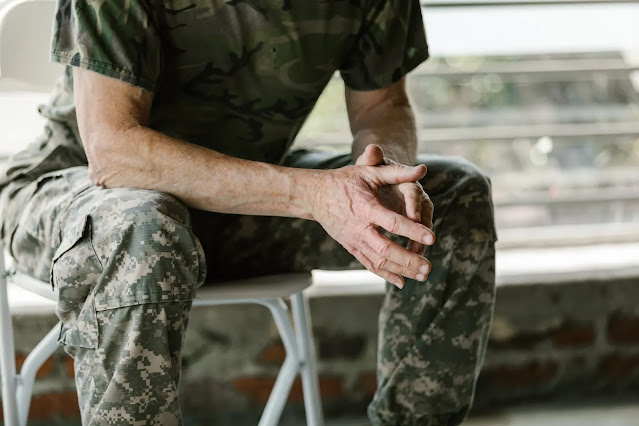Caring for a military veteran family member can be a challenging yet fulfilling journey. It requires dedication, empathy, and a deep understanding of the veteran’s experiences and the effects their service have had on them. It’s vital to acknowledge and appreciate the sacrifices made by our veterans and their families; providing care and support is one way to do so.
Veterans face unique challenges, such as physical and mental health issues, that can affect their ability to perform daily activities, maintain relationships, and adjust to civilian life. As a caregiver, it’s crucial to be aware of these challenges and be prepared to provide the necessary support and care. This article will explore six practical ways to help you care for your veteran family member.
1. Helping with Medical Needs
As a caregiver for a military veteran family member, it’s important to understand and assist with their medical needs. Many veterans may have developed health issues related to their service, such as exposure to toxic substances, combat injuries, or mental health conditions.
Helping your veteran family member access compensation and settlements can alleviate financial burdens and support their overall well-being in that situation.
For example, if your veteran family member has been diagnosed with lung cancer, it’s important to seek out reputable resources and support for navigating the VA claims process and pursuing lung cancer settlements. Several organizations can provide valuable information and guidance throughout this process and connect you with legal resources and support groups for caregivers and veterans alike.
2. Understanding the Veteran Experience
After serving their country, many veterans face unique challenges, such as adjusting to civilian life and finding employment. A good starting point to understanding their experiences is to listen to their stories and learn about their service. Reading books and watching documentaries about the military can also help you better understand their experiences.
You can also attend local events and ceremonies that honor veterans. Visit a military museum or take part in Veterans Day parades. Involving yourself in the veteran community will help you recognize their sacrifices and gain a deeper appreciation for their service.
3. Providing Emotional Support
Many veterans struggle with mental health issues such as post-traumatic stress disorder (PTSD) and depression. Providing emotional support to your veteran family member is important as a caregiver. One of the best ways to do this is to listen actively and without judgment. Let them know you are there to support them and encourage them to seek professional help.
Many resources are available to help veterans and their families with emotional support. The Veterans Crisis Line provides free, confidential support to veterans and their families 24/7. Such groups can provide a safe space for veterans to share their experiences and connect with others who have gone through similar experiences.
4. Encouraging Self-Care
Caring for a veteran family member can be emotionally and physically exhausting, so it’s crucial to prioritize self-care for you and your loved one. Taking steps to promote self-care can reduce stress and prevent burnout. First and foremost, it’s important to encourage your veteran family member to prioritize self-care by setting aside time for activities they enjoy, such as hobbies or spending time with loved ones.
You can also help them create a self-care plan that includes healthy eating habits, regular exercise, and good sleep hygiene. To reduce stress, suggest relaxing techniques for your veteran family member, such as meditation, deep breathing exercises, or gentle yoga. Furthermore, they should be encouraged to move around and frequently stretch during the day to avoid prolonged sitting.
5. Celebrating Milestones
Celebrating milestones in veterans’ journeys is essential to their well-being and can help them feel appreciated and valued. Some milestones to celebrate may include anniversaries of service, recovery milestones, or graduation from a training program. As a caregiver, you can plan celebrations and express gratitude for your veteran family member’s service and sacrifice.
There are many unique ways to celebrate milestones for veterans. You can host a celebration at home or plan a special outing, such as a day trip or weekend getaway. Additionally, you can involve the community in celebrating milestones by organizing a parade or community event to honor veterans.
6. Connecting with Other Caregivers
Caring for a veteran family member can be an isolating experience. It’s important to connect with other caregivers who understand your experiences and can offer support and advice. You can connect with other caregivers through support groups, online forums, or social media.
Support groups and online resources are available through the VA’s caregiver support services. Additionally, you can seek out caregiver support programs and connect with professional veteran caregivers. These resources offer various benefits, including counseling, respite care, and educational resources to help you better understand your loved one’s needs and how to care for them.
Conclusion:
Caring for a veteran family member is not an easy task, and it can be emotionally and physically draining. However, by following the tips outlined in this article, you can make a significant difference in your loved one’s life and help them lead a happy and fulfilling one.
Remember to take care of yourself as well, and do not hesitate to seek support when needed. You play a vital role in the life of your veteran family member, and your dedication and compassion are deeply appreciated. With the right support and resources, you can continue to provide excellent care to your loved one and make a positive difference in their life.




0 Comments:
Post a Comment
"Pleasant words are as a honeycomb: sweet to the soul and health to the bones." Proverbs 16:24